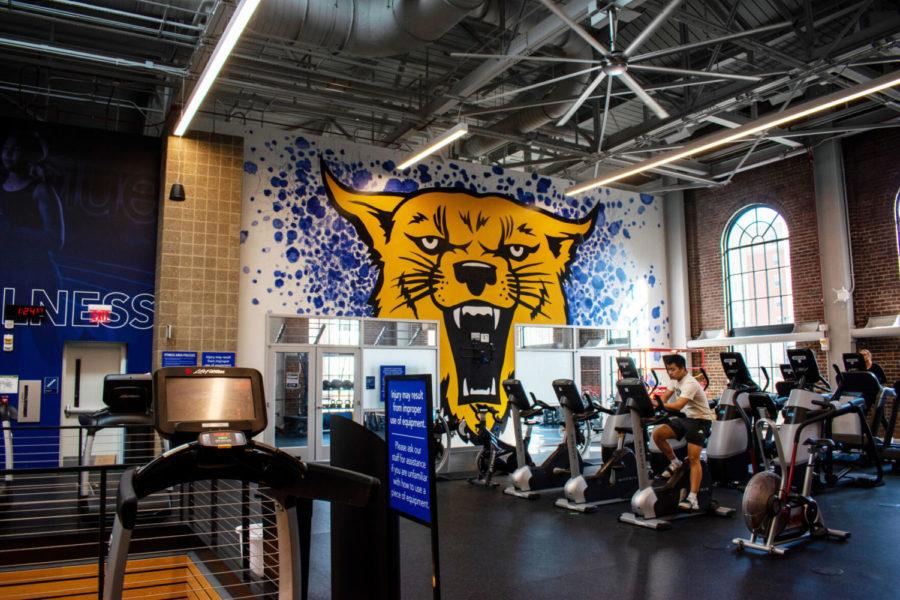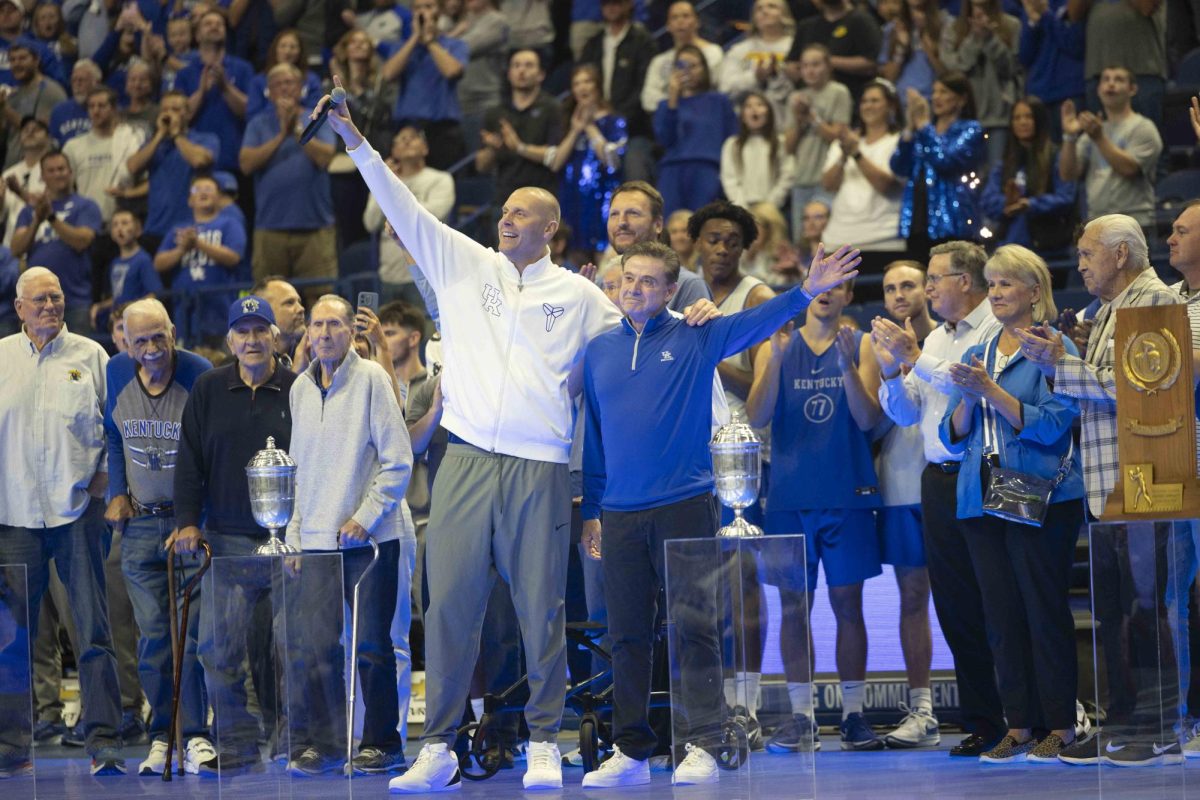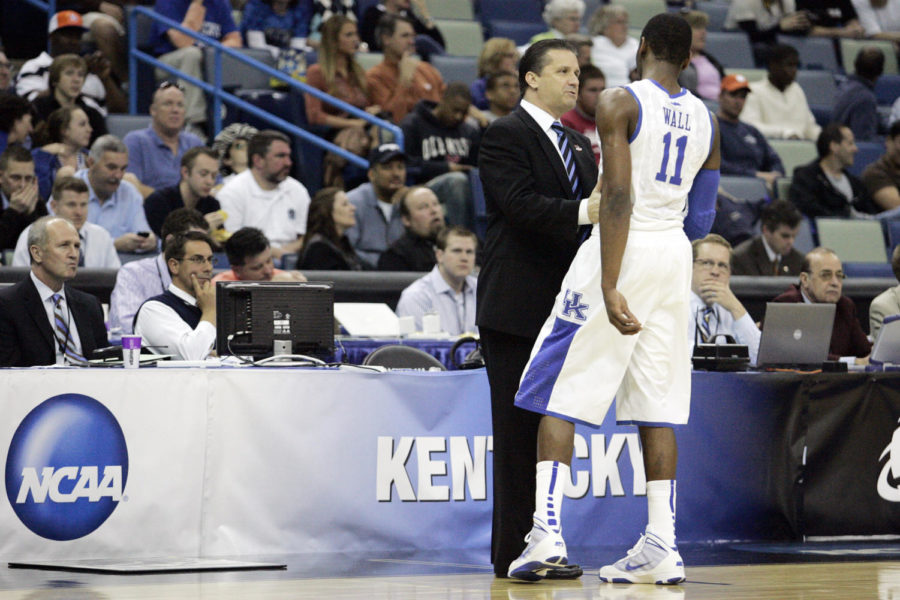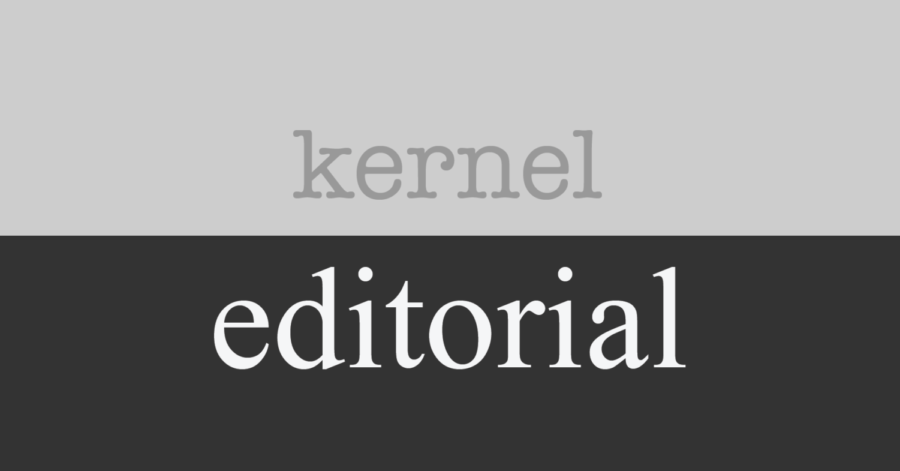The Kernel stands with The Battalion
February 17, 2022
Student journalism matters. Print journalism matters.
Journalism without outside control and influence helps preserve democracy and stops corruption. This is impossible without the existence of a free and independent press, and it is impossible without the existence of print media.
The Kentucky Kernel stands in staunch opposition to the Feb. 10 decision made by the Texas A&M administration to cease printing of The Battalion, its student newspaper.
As the subsequent article published in The Battalion alludes, the newspaper has been released in print editions for almost all of its 129-year history. According to The Battalion, earlier this month, the A&M administration made the decision to move the newspaper under the developing Department of Journalism – effectively bringing the publication under the supervision and jurisdiction of the university.
This decision was made without input from any staff from The Batt or journalism faculty, the article said. However, in a Feb. 14 press release, A&M president M. Katherine Banks said that two representatives from the newspaper and the publication’s faculty advisor would be included in a “Working Group” deciding future steps for the journalism department and The Batt. This came after an outpouring of support on social media for The Batt from journalists, student publications, members of the A&M student body and organizations across the U.S., including an open letter from the College Media Association.
Regardless, such a sudden demand for cessation by the university’s administration, without consulting those most affected, begs the question: Why would a president who has been in the position for less than a year make the call to end a century-long tradition? Importance of journalism aside, this seems like a risky – and suspicious – decision.
In a statement to The Batt, Banks said that she “does not know” why print journalism is important to the industry. Please allow the Kernel to offer some reasons why it is not only important to the field of journalism but to the democratic process as a whole.
Firstly, freedom of the press is a Constitutional right guaranteed in the First Amendment. This provision protects the media from oversight by those in power, regardless of how they are portrayed. It is the role of the press, at any level, to point out corruption and inform the public of events free of bias.
At the collegiate level, the ability of student newspapers to act as a watchdog on the administration is vital for ensuring students’ voices are heard and the university does not operate in an echo chamber of its own ideas. The culture of higher education should be crafted predominantly around the students who are currently enrolled at the school, not alumni, prospective students or donors. Members of the student body are the ones who are mostly affected by the university’s decisions, and it is their perspective that should be taken into account.
A student newspaper that is not able to operate so freely is arguably unable to fulfill a basic function of journalism, and this should be concerning not only to the students but the administration itself. How can a university hope to improve and better serve its students when their true opinions are not expressed?
There is no better way to share this perspective than an independent newspaper written by students, for students, without censorship by the administration.
In the Kernel’s case, we have been editorially independent since 1971, which means that we are able to publish news and opinions without fear of censorship by the UK administration or Board of Trustees.
While this does not mean that there are not consequences and backlash from what we print – as evidenced by the fact that we were sued by UK over an open-records request – it guarantees that UK cannot prevent us from printing anything we wish, even if it paints the university in a negative light.
The Kernel is not funded by UK, so we will proudly continue to publish weekly print editions for the UK campus community.
For the most part, UK does a commendable job of allowing us to publish freely, and the Kernel is thankful for the relationship we have with the university as we both strive to make this school a better place for students to live and learn.
Secondly, while it could be argued that American journalism is trending toward a more online format and away from the traditional printed editions, that is no justification of A&M’s call to cut printing The Batt without warning.
Using this industry-wide shift as a reason for the sudden cessation without consulting the staff is, frankly, disrespectful of journalism’s rich history of print and displays a poor understanding of the field. The decision to move The Batt online is one that is the staff’s and the staff’s alone to make.
By the administration overstepping its bounds and making this announcement on its own, it is single-handedly changing the newspaper’s method of distribution and format, altering The Batt’s entire identity as a publication that has been in existence for longer than any administrators have been alive. This is a call that should never have been theirs to make.
The Kernel looks forward to seeing a more collaborative partnership between The Batt and A&M and hopes that president Banks will strongly reconsider the decision to cease printing the newspaper. It is the best decision for the students and the future of student journalism, helping preserve this proud tradition that is so vital to higher education.



























































































































































